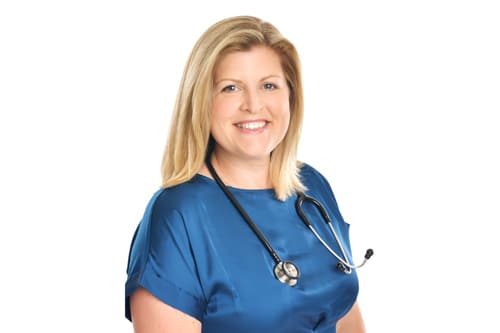Choosing the right contraception takes careful planning and consideration especially as women age and their needs and health concerns change. In fact on average a woman uses four different types of birth control over her reproductive lifetime. Dr Rebecca explains all.
Seek your doctors advice
Contraception is not a one size fits all solution. When deciding on contraception, discuss with your doctor any underlying health concerns, current medication that could cause drug interactions, your lifestyle and any significant family history such as breast cancer. Your stage of life is a significant consideration when selecting contraception.
For our A to Z guide to Contraception click here
Teens
The first contraception used by teenagers and young women is often the combined pill. Yet increasingly, teens are moving towards the LARC options as they are less prone to error.
Remembering to take a pill every day can be challenging with a hectic lifestyle. It is a myth that coils are not suitable for younger women and it can be an option, even if you have not had a baby, although careful counselling of the patient is required.
It can be hard to talk to your teen about birth control but you can encourage them to talk to their GP. It is also important to encourage condom use for protection against STIs and to have regular sexual health screens with each new partner.
Contraception after having a baby
Sleepless nights, sore boobs, hormonal changes and the demands of a baby: no wonder people often joke that the best form of contraception is being the parent of a new born.
However, it is important to start discussing contraception with your doctor soon after the birth even if you feel it isn’t at the top of your to do list. Unplanned pregnancies in the first few weeks to months after having a baby do occur.
How soon can I start having sex again?
There is no hard and fast rule regarding when to resume sex, although most doctors would advise to wait the first 3-4 weeks. The correct time is when you are ready, which could be weeks or even months. Try not to feel pressured or guilty. It’s okay if it takes time.
How soon does fertility return after giving birth?
Fertility can start to return early postpartum although you are unlikely to get pregnant in the first three weeks. Thereafter, periods can resume anytime from 5-6 weeks onwards if you are formula or combination feeding. For mums exclusively breastfeeding in the day and night, it can take up to 6 months for the periods to return.
And don’t forget you can get pregnant even before your periods resume, as you ovulate two weeks prior to your period. So it’s best to be prepared.
What contraception options are available for me?
This largely depends on the time since delivery, whether you are breastfeeding or not and also if you have any other medical conditions or risk factors which would prevent the use of certain methods. On the whole, most women have several options available:
I want a method that won’t affect my milk supply
- Mirena coil, copper coil, depo implant, progesterone only pill or the depo injection
- Research has shown that hormones from contraception can enter the milk in very small amounts but there is no evidence that this can cause any harm to your baby
I would like to resume my combined contraception pill
The pill can be started from 3 weeks after the delivery if not breastfeeding. In some women it can affect milk supply, therefore it is advised to start from at least 6 weeks if breastfeeding.
I want a very effective method as I am tired and keep forgetting pills but I might want to try for another baby in a few years
The mirena or copper coil and the contraceptive implant are very reliable methods and are rapidly reversible, meaning your fertility returns quickly after you stop using them.
I want to avoid hormones altogether
Condoms or the copper coil could be a good option. The Lactation Amenorrhoea Method (LAM) can also prevent pregnancy in the first 6 months postpartum. For this to be effective you must be breastfeeding day and night, less than 6 months postpartum and your periods have not returned.
Contraception over 40 years of age
Many women are aware that fertility can start to decline over the age of 40 and as a result some start to become less reliable with taking contraception. If periods are becoming lighter or less regular, or perhaps sex is less frequent, women can falsely assume there is a low risk of pregnancy. An unplanned pregnancy might sound like a teenage problem, but it’s very possible to have an unplanned pregnancy in your 40s. Furthermore, pregnancy can be more challenging at this age for women and there is an increase in pregnancy complications too.
At this stage in life, women may have more concerns or risk factors for some health conditions such as breast cancer, heart disease or thrombosis and such considerations should be discussed. Vaginal dryness is more common and can make condoms uncomfortable for some.
The combined pill can be taken until the age of 50, however over 40 your doctor will screen you carefully for any health risks that could lead to heart, stroke or clotting problems which would contraindicate this method.
Progestogen only pills are a safe option until contraception is no longer required. If your periods have stopped due to contraception, your can check your hormones with a blood test to see if you have passed the menopause.
Over the age of 40, the depo injection is used more cautiously as there is a risk of reduced bone density, so risk factors of osteoporosis should be assessed.
Implants and coils can be used safely up until the age of 55 when it is assumed in all women that fertility is lost.
The average age of the menopause is 51, although this varies widely. Some women start to suffer with hot flushes in the run up to the menopause and HRT might be required. It is important to realise that HRT is not a method of contraception. Barrier methods, coils and progestogen only pills can be used safely alongside HRT.
The mirena coil is a popular option in this scenario. It can be used with add on oestrogen HRT pills or gel to control menopause symptoms whilst also providing excellent contraceptive cover. Heavy periods that often occur during the time around the menopause will also be lessened.
Final word
There are many contraception choices available for women and the right choice for you may change throughout your life, from the teenage years to being a busy mum and up to the menopause. If you have continued with the same method for many years, it might be a good time to step back and evaluate if your current choice is still working for you.

She has been a member of the Faculty of Sexual and Reproductive Health for 10 years and is a qualified contraceptive coil and implant fitter.




































